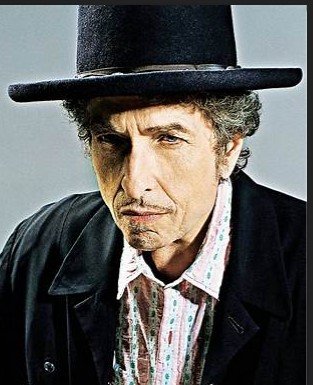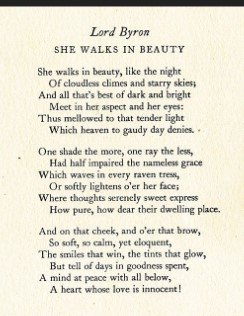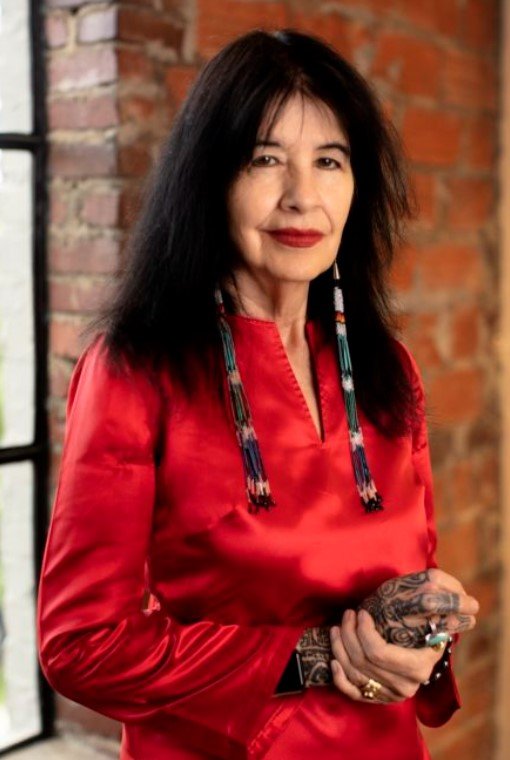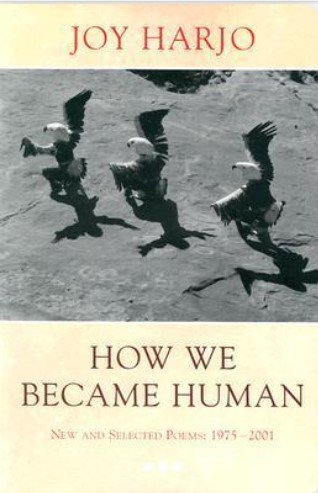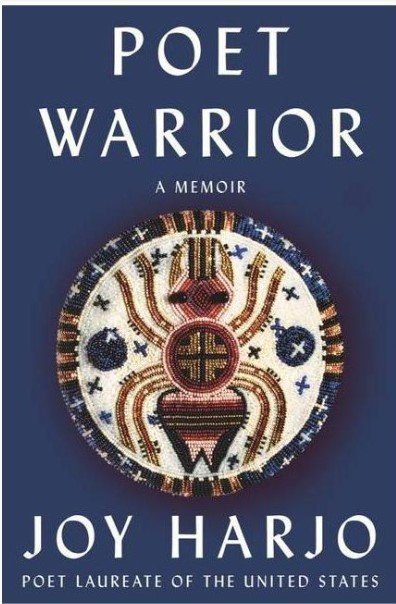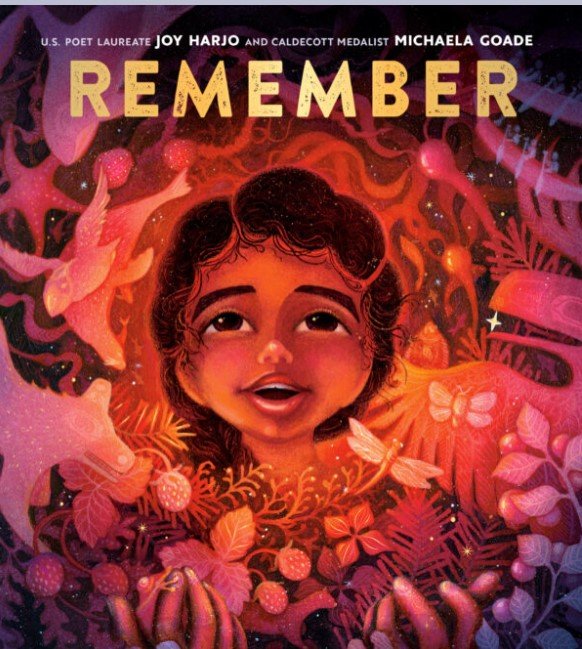Poetry Challenge #302-No Messing Around
The first time I heard Lucille Clifton’s poem, “Homage to my Hips,” I thought she wrote it for me. It was bold, it was sassy, it was playful, and like the hips it honors, didn’t mess around.
Lucille Clifton, born June 27, 1936 is gone now (since 2010), but in her lifetime, and in her poetry, she didn’t mince words or spend time messing around with nonessentials.
Clifton was the first author to have two books of poetry chosen as finalists for the Pulitzer Prize, Good Woman: Poems and a Memoir, 1969-1980 (1987) and Next: New Poems (1987), and from there the list of awards goes on and on. . .
When asked how she wanted to be remembered, Lucille Clifton said,
“I would like to be seen as a woman whose roots go back to Africa, who tried to honor being human.
My inclination is to try to help.”
“The first thing that strikes us about Lucille Clifton’s poetry is what is missing: capitalization, punctuation, long and plentiful lines. We see a poetry so pared down that its spaces take on substance, become a shaping presence as much as the words themselves.” -Christian Century review of Clifton’s work, Peggy Rosenthal
Poetry Challenge #302
NO MESSING AROUND!
Many reviews of Clifton’s poetry make note of her lean style and “physically small” poems. “Poetics of understatement,” Robin Becker called it in the American Poetry Review “—no capitalization, few strong stresses per line, many poems totaling fewer than twenty lines, the sharp rhetorical question.”
For today’s prompt, write a poem in which you try to “honor being human” the way Clifton herself might have written it.
Keep it short, tight, honest, stripped down, unapologetically lower case—no messing around.
Set Your Timer for 7 Minutes
Start Writing!
Don’t Think About it, Write It!
Cindy Faughnan and I began this 7-Minute Poetry Challenge 2600+ days ago. Now we take turns creating prompts to share with you. Our hope is that creatives—children & adults—will use our prompts as springboards to word play time. If you join us in the Challenge, let us know by posting the title, a note, or if you want, the whole poem in the comments (below the giveaway notice).
Click on Fishbowl link and sign up to receive email notifications from Kelly's blog (aka The Fishbowl):
All who subscribe, comment or share a poem will be entered in . . .
Poetry Challenge #301-U-Turn
Confession Time: I can get lost in my own home—and do! I’ll be on my way to do something, something very intentional—maybe even important—and right in the middle of the going I’ll forget what I was fetching.
Or, even with the not-so helpful help of Google Map telling me to “Head North” or “Head South” I’ll have to proceed until it tells me to “make the first legal u-turn” or not to find out for sure which direction I should be heading.
And other times, like yesterday—or earlier when I had to turn back to where I’d come from and begin again before it dawned on me where I had been going, what I had been doing in the first place.
That’s what this is. U-Turn!…beep-beep-beep backing up!. . . . Change that to You-Turn!
Poetry Challenge #301
You-Turn!
Turn back to the poems you’ve already written.
Find two (or three) that have the same or similar topics.
Read through them and mark your favorite words, phrases, or images.
Now try to combine the poems into one. You can add and take away words as needed.
Watch for sound, incidental rhyme, and strong feelings!
Set Your Timer for 7 Minutes
Start Writing!
Don’t Think About it, Revise It!
Cindy Faughnan and I began this 7-Minute Poetry Challenge 2600+ days ago. Now we take turns creating prompts to share with you. Our hope is that creatives—children & adults—will use our prompts as springboards to word play time. If you join us in the Challenge, let us know by posting the title, a note, or if you want, the whole poem in the comments.
Click on Fishbowl link and sign up to receive email notifications from Kelly's blog (aka The Fishbowl):
All who subscribe, comment or share a poem will be entered in . . .
Poetry Challenge #300-Rap-A-Rapa-Rap
Rap gets a bad rap. We, oldsters, now, ourselves raised on rock-n-roll, listen with our ears craning to pick out harsh sounds, harsh images, “nasty” words the same way our grandparents (parents?) listened to Chuck, Elvis and the Beatles—heads poised to shake, tongues already tsking. What they didn’t know—and so many of us seem to have forgotten—words, music, poetry is a way to express feelings-get them out. The first step to healing.
No one illustrates the healing power of words than Rapper—"embodiment of gansta-rap aesthecitc” –and actor, Tupak Shakur RIP. He was gunned down in Las Vegas and died on Sept. 13, 1996. His murder was never solved.
Tupak Shakur was born June 16, 1971, in Harlem, to Afeni Tupak, a single, struggling, mother of two. The family moved often, in and out of shelters, finally, fortuitously, for Tupak, to Baltimore. That move may well have made all the difference.
Recognized, immediately for his intelligence and personability, Tupak attended the Baltimore School for the Arts, where biographer Robert Sam Anison noted in a 1997 Vanity Fair feature, Tupac felt "the freest I ever felt” …where, Tupac discovered the power and release and comfort of words. By seventeen, when he was already “obsessively” writing poetry and listening to Hip-Hop.
Below is Tupak’s poem “The Rose That Grew from Concrete” and here’s an analysis from Poet & Poem: CLICK!
With his music, his words, Tupak expressed the frustration, anger, pain so many others felt, and are still feeling. To date he’s sold over 75 million albums, making him one of the top-selling artists of all time.
If you’d like to read the lyrics to Dear Mama as you listen: CLICK!
The “main-stream” public found the power and rawness of Tupak’s music frightening and tuned out before listening (me included, until a friend’s son Xan shamed me into listening.) Tupac often complained that he was misunderstood—Sound familiar Elvis? John?
"Everything in life is not all beautiful. There is lots of killing and drugs. To me a perfect album talks about the hard stuff and the fun and caring stuff. ... The thing that bothers me is that it seems like a lot of the sensitive stuff I write just goes unnoticed."-2Pak
Poetry Challenge #300
Rap-A-Rappa-Rap
For today’s prompt let’s put aside any pre-conceived notions about Hip-Hop and Rap and try to write it.
Rap, also called Hip-Hop (which also includes the culture), by definition is a “musical style in which rhythmic and/or rhyming speech is chanted (“rapped”) to musical accompaniment.”
Which comes first, the rhythm or the words? That’s up to the creator. Some Rap is created by fitting words to an established rhythm. Others create rap by first writing a poem, then reread it and listen for a natural rhythm. Either way, once the rhythm is set, revise by changing, moving, rearranging words to make the rhythm strong and repeatable.
As Tupak did with his writing, challenge yourself to write about “the hard stuff and the fun and the caring stuff” in your rap.
Set Your Timer for 7 Minutes
Start Writing!
Don’t Think About it, Rap it!
Cindy Faughnan and I began this 7-Minute Poetry Challenge 2600+ days ago. Now we take turns creating prompts to share with you. Our hope is that creatives—children & adults—will use our prompts as springboards to word play time. If you join us in the Challenge, let us know by posting the title, a note, or if you want, the whole poem in the comments.
Click on Fishbowl link and sign up to receive email notifications from Kelly's blog (aka The Fishbowl):
All who subscribe, comment or share a poem will be entered in . . .
Poetry Challenge #299-Dream On Nikki!
As soon as I began reading about our June 7th birthday poet dream songs swirled: Dreamer, Daydream Believer, Beautiful Dreamer. . . the Everly Brother’s crooning Dream-Dream-Dream…
Nikki Giovanni is all about dreams. Nikki was sickly child which made her, in her words, “Lucky!”
Lucky because she was always sniffling.” Why?
Because she writes in her website bio, she could stay home and read the books she wanted to read. And her family’s library was extensive and inclusive—no subjects were deemed too big, complex or taboo.
Nikki Giovanni has written many books of poetry, biographies and numerous children’s books including my favorite:
I Am Loved!
Poems with the late Ashley Bryan’s glorious art!
When Nikki became a mother, she moved into writing for children.
Nikki Giovanni was born in Knoxville, Tennessee, on June 7, 1943, and grew up spending the school year in Cincinnati and summers back in Knoxville. She’s on the faculty at Virginia Tech, where she is a University Distinguished Professor.
Her first poetry collections were published in 1968, and the list of awards Nikki Giovanni has received since reads like a novel. Perhaps because she is a committed explorer:
“My dream was not to publish or to even be a writer: my dream was to discover something no one else had thought of. I guess that’s why I’m a poet.”
Poetry Challenge #299
Dream ON!
Many of Nikki Giovanni’s poems deal with family and life. Read “Her Dreams” “Bay Leaves” and/or “The Longest Way Round” (above & below).
Think of a moment in your life and write a poem about it.
Play with the words until you get exactly the right ones.
Try having only one word on a line once or twice in your poem.
Set Your Timer for 7 Minutes
Start Writing!
Don’t Think About it, Write It!
Here are the links to the poems referenced here via Poetry Foundation, so you can read them in their entirety and/or read more of this beautiful dreamers work! (you’ll need to cut and paste them into your browser.)
https://www.poetryfoundation.org/poetrymagazine/poems/159788/her-dreams
https://www.poetryfoundation.org/poetrymagazine/poems/159787/bay-leaves
https://www.poetryfoundation.org/poetrymagazine/poems/159790/the-longestway-
round
Cindy Faughnan and I began this 7-Minute Poetry Challenge 2400+ days ago. Now we take turns creating prompts to share with you. Our hope is that creatives—children & adults—will use our prompts as springboards to word play time. If you join us in the Challenge, let us know by posting the title, a note, or if you want, the whole poem in the comments.
Click on Fishbowl link and sign up to receive email notifications from Kelly's blog (aka The Fishbowl):
All who subscribe, comment or share a poem will be entered in . . .
Poetry Challenge #298-Chewing On a Cigar
When anyone asks about Long Island, where it is in New York, especially in proximity to Manhattan, I describe it as being a long thin cigar sticking out of its mouth. And today’s poet, Walt Whitman, known as the first writer of truly American poetry, was born and raised at the head of the cigar, on the family farm in Huntington, Long Island.
The second of nine children in a farming family, Whitman lived from May 31, 1819 -1892 and often wrote about democracy, nature, love, and friendship.
His first collection Leaves of Grass, a thin volume of poem, called a quintessential collection of American poetry, was published in 1855, not by an established publisher—because none would take it—but by friends of his Whitman strong armed. Leaves of Grass has been in print ever since.
Whitman often wrote about political figures without naming the person. “When Lilacs Last in the Dooryard Bloom’d” and “O Captain, My Captain” are both written about Abraham Lincoln. Below is just the opening of “O Captain, My Captain” and a bit more of “When Lilacs…”:
This poem goes on for 16 stanzas. Read it in its entirely at Poetry Foundation:
Poetry Challenge #298
Chewing on the Cigar
Walt Whitman often ignored the standards of rhyme and rhythm and is said to be a father of free verse.
Choose one historical person or event and write about it without naming the person/event. You can write with rhyme or not. Try to capture the feeling you have about this person/event.
Set Your Timer for 7 Minutes
Start Writing!
Don’t Think About it, Write It!
Walt Whitman’s Birthplace is now a museum, interpretive center and the start of the Walt Whitman trail, 40 miles of glorious nature trails with nary a tobacco plant to be found, with Jayne’s Hill, elevation 400 feet, the high point. Here’s a photo taken when Whitman, then 65 visited.
Cindy Faughnan and I began this 7-Minute Poetry Challenge 2400+ days ago. Now we take turns creating prompts to share with you. Our hope is that creatives—children & adults—will use our prompts as springboards to word play time. If you join us in the Challenge, let us know by posting the title, a note, or if you want, the whole poem in the comments.
Click on Fishbowl link and sign up to receive email notifications from Kelly's blog (aka The Fishbowl):
All who subscribe, comment or share a poem will be entered in . . .
Poetry Challenge #297-Jingle Jangle Morning
Do ya think Robert Allen Zimmerman of Duluth, Minnesota sounds like a fitting name for a poet? Obviously Bob Dylan didn’t think it did either.
Twenty years after his May 24, 1941 birthday, Mr. Zimmerman aka Elston Gunn aka Tedham Porterhouse aka Blind Boy Grunt aka Robert Milkwood Thomas aka Boo Wilbury aka Sergi Petrov legally changed his name to Robert Dylan (“Dylan” in honor of poet Dylan Thomas).
If he’d waited a few years Bob might have added the middle name “Woody” or “Guthrie” in honor of his mentor Woody Guthrie, who’s storytelling songster style he emulated.
While Dylan, who was awarded the Nobel Prize in Literature in 2016, is “widely recognized as one of the greatest songwriters of the 20th century,” and called by Newsweek, in 2004 “the most influential cultural figure now alive," whether or not he should be called a poet is apparently debatable.
or was . . .
Poet biographer, literary critic Christopher Ricks wrote: “Dylan's lyrics not only qualify as poetry, but that Dylan is among the finest poets of all time, on the same level as Milton, Keats, and Tennyson. He points to Dylan's mastery of rhymes that are often startling and perfectly judged. For example, this pairing from ‘Idiot Wind,’ released in 1975:
Idiot wind, blowing like a circle around my skull,
From the Grand Coulee Dam to the Capitol”
The Norton Introduction to Literature included “Mr. Tambourine Man” in the 2005 edition.” Case Closed.
Poetry Challenge #296
Jingle-Jangle Morning
Along with his talent for clever rhymes, Dylan is known for ballads. So, hello! Let’s give it a go!
A ballad is a type of poem that tells a story, is often set to music, and usually rhymes. A traditional English ballad is composed of 4-line stanzas with a rhyme scheme of ABCB.
If you’re so inclined bust out a guitar or tambourine and sing out your rhyme.
One thing’s for certain, compared to Dylan, no matter how bad your voice, you’ll jingle-jangle.
Set Your Timer for 7 Minutes
Start Writing!
Don’t Think About it, Write It!
I’ve said it before and I’ll say it again: Visit Tulsa's Bob Dylan Center.
Cindy Faughnan and I began this 7-Minute Poetry Challenge 2400+ days ago. Now we take turns creating prompts to share with you. Our hope is that creatives—children & adults—will use our prompts as springboards to word play time. If you join us in the Challenge, let us know by posting the title, a note, or if you want, the whole poem in the comments.
Click on Fishbowl link and sign up to receive email notifications from Kelly's blog (aka The Fishbowl):
All who subscribe, comment or share a poem will be entered in . . .
Poetry Challenge #296-Refrain for Commenting
Every romantic worth their salt knows enough of Lord Byron’s poetry to spout “She walks with beauty, like the night” blah-blah-blah…that’s a prompt for another day. For today, May 17th marks the birthday of another poet in the family, the one who, in letters, addressed Lord Byron as “Dearest Duck.” Who might that be?
His wife of course! Anne Isabella Noel Byron, 11th Baroness Wentworth and Baroness Byron (née Milbanke; 17 May 1792 – 16 May 1860), nicknamed Annabella. According to Byron’s official Britannica biography, Lady Byron was “an unimaginative and humorless wife,” who bore (a daughter) and bored him. They separated after a year. Lady Byron, by all accounts much happier away from him, became a wordsmith and mathematician to boot! Who knew? What she wrote, we’ll leave to you to discover, for although dear Annabella is listed as a poet, we couldn’t find any of her poems. And so that, dearest ducks, is that!
Poetry Challenge #296
Refrain for Commenting
Pick a wise quotation from the list below or an adage you know. Use it as your title and write a poem that uses the line 3 or 4 times. You can use it exactly the way it’s written or you can change it slightly. You can embed it in the poem, split it onto two lines, or have it sit apart from the rest of your poem. However you use it, it will become a refrain. Use the repetition to get the sound you want.
Here are a few choices. Feel free to find others.
“Never let your sense of morals prevent you from doing what is right.”
“The unexamined life is not worth living.”
“Turn your wounds into wisdom.”
“The simple things are also the most extraordinary things, and only the wise can see them.”
"When the going gets tough, the tough get going."
"Leave no stone unturned."
"Hope for the best, prepare for the worst."
"Actions speak louder than words."
"Two wrongs don't make a right."
Set Your Timer for 7 Minutes
Start Writing!
Don’t Think About it, Write It!
Now that you’re done, here’s Lory Byron’s poem, “She Walks in Beauty.” But don’t delude yourself into thinking it’s about Annabella—rumor has it the only reason they married was to squelch rumors that he was having an “incestuous relationship” with his cousin.
Cindy Faughnan and I began this 7-Minute Poetry Challenge 2500+ days ago. Now we take turns creating prompts to share with you. Our hope is that creatives—children & adults—will use our prompts as springboards to word play time. If you join us in the Challenge, let us know by posting the title, a note, or if you want, the whole poem in the comments.
Click on Fishbowl link and sign up to receive email notifications from Kelly's blog (aka The Fishbowl):
All who subscribe, comment or share a poem will be entered in . . .
Poetry Challenge #295-This Land is Your Land
Joy Harjo is a member of the Muscogee (Creek) Nation—our first Native American Poet Laureate! She was born in Tulsa, Oklahoma on May 9, 1951, lives in Tulsa now, as she did during my years in Tulsa, and so in a way, I feel she is my personal poet.
However, after having served three terms as the 23rd Poet Laureate of the United States (from 2019-2022), for the past several years she has been all of our poet.
“I feel strongly that I have a responsibility to all the sources that I am: to all past and future ancestors, to my home country, to all places that I touch down on and that are myself, to all voices, all women, all of my tribe, all people, all earth, and beyond that to all beginnings and endings.”
-Joy Harjo
An internationally renowned performer and writer, Joy Harjo is the author of ten books of poetry, including Weaving Sundown in a Scarlet Light: Fifty Poems for Fifty Years, plays, memoires, and children’s books including a new picture book of her poem “Remember.” As a musician and performer, she has produced seven award-winning music albums including her newest, I Pray for My Enemies. She was the first Artist-in-Residence for Tulsa's Bob Dylan Center.
Poetry Challenge #295
This Land is Your Land
About her work, Poetry Foundation says: “Harjo draws on First Nation storytelling and histories, as well as feminist and social justice poetic traditions, and frequently incorporates indigenous myths, symbols, and values into her writing. Her poetry inhabits landscapes—the Southwest, Southeast, but also Alaska and Hawaii—and centers around the need for remembrance and transcendence.”
For this prompt, write a “Place” poem.
As an example, consider Harjo’s “Invisible Fish” (above) and how by using a few specific words she transports us to that dusty, desert. Try to likewise infuse your poem with symbols, myths, values specific to that place.
Set Your Timer for 7 Minutes
Start Writing!
Don’t Think About it, Write It!
Experience Joy Harjo’s Eagle Poem yourself; her words in her voice: Eagle Poem - Audio Poem of the Day | Poetry Foundation
Cindy Faughnan and I began this 7-Minute Poetry Challenge 2400+ days ago. Now we take turns creating prompts to share with you. Our hope is that creatives—children & adults—will use our prompts as springboards to word play time. If you join us in the Challenge, let us know by posting the title, a note, or if you want, the whole poem in the comments.
Click on Fishbowl link and sign up to receive email notifications from Kelly's blog (aka The Fishbowl):
All who subscribe, comment or share a poem will be entered in . . .





























